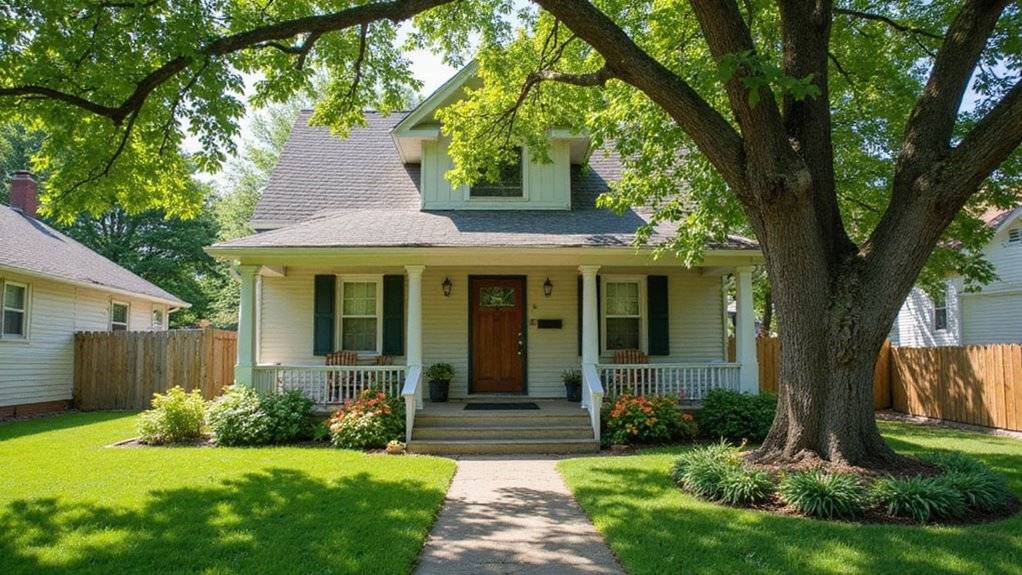Inheriting property often brings a mix of emotions and unexpected responsibilities for grieving heirs. Suddenly you’re facing mortgage payments, maintenance costs, and complex legal requirements you never anticipated. The stress compounds when family members disagree about what to do with the property or when financial pressures mount. Fortunately, selling an inherited house offers a clear path forward with several practical options available.
Yes, you can absolutely sell an inherited house, but you must navigate probate procedures, establish clear ownership, and understand tax implications before proceeding. Your ability to sell depends on whether you’ve completed the legal transfer of ownership and addressed any outstanding debts attached to the property.
The selling process varies based on how you inherited the property and your local laws. Most heirs choose between traditional real estate agents, direct cash buyers, or rent-to-own arrangements. Each option offers different benefits depending on your timeline and financial goals.
In this blog I will explore everything you need to know about selling an inherited property effectively.
Key Takeaways
- You can sell an inherited house after completing probate or if ownership is transferred through a deed or joint ownership.
- All co-heirs must agree, and proper legal documentation is necessary to sell the property.
- Resolving any existing mortgages, liens, or debts is essential before listing or selling the home.
- Selling options include real estate agents, cash buyers, FSBO, or rent-to-own arrangements, depending on your goals.
- Emotional considerations and family agreements are important; professional guidance can help navigate the process smoothly.
What Happens When You Inherit a House?

When you inherit a house, the legal transfer of ownership triggers a complicated process that can take months and requires court approval.
You also need to handle immediate financial burdens like taxes, maintenance, and debts that pile up during probate.
Plus, emotional conflicts can erupt among family members over the property’s future, adding stress and urgency to your decision-making.
Legal Transfer of Ownership
You must transfer a house into your name after inheriting it. This prevents costly legal complications. Property inheritance laws require probate for solely owned homes.
Transfer on death deeds can allow direct ownership changes without court involvement. The process differs based on how the property was titled. Joint ownership with right of survivorship bypasses probate entirely.
Your state’s specific regulations determine the exact steps needed. Acting promptly protects your rights to the property. As a result, you can properly maintain, insure, or sell the home without delays.
Initial Financial Implications
Inheriting a house creates immediate financial responsibilities. You must pay property taxes, utilities, and maintenance costs right away, even before the title transfers.
You become liable for all property expenses the moment you take ownership.
Property taxes continue to accrue regardless of your occupancy status. Any existing mortgages or liens need resolution. Capital gains taxes may apply when you sell the property.
Prompt action prevents complications. Taking inventory of all associated costs helps with planning.
Consider consulting a financial advisor for guidance on managing these new obligations.
Emotional Considerations
Inherited homes often bring grief, stress, and overwhelming feelings that can complicate decisions. You might feel reluctant to sell because of emotional attachments to the property.
These feelings can lead to decision paralysis or family conflicts about the home’s future. Open conversations with family members help address emotional hurdles early.
Professional guidance from grief counselors or estate attorneys provides valuable perspective during this process. Consider allowing yourself adequate time to process emotions before making permanent decisions.
In some cases, family members may have legal claims to the property that require formal resolution before proceeding.
Can You Sell an Inherited House?

Yes, you can sell an inherited house, but not immediately after death. You must first complete probate and secure legal ownership. This process ensures proper transfer of property rights.
All co-heirs must agree to the sale and proper documentation is required. The court needs to validate your authority as the seller. A property appraisal establishes fair market value.
Before listing, clear any outstanding debts or liens against the property. In some cases, court approval becomes necessary for the final sale.
Furthermore, you’ll need to determine your preferred selling method. Despite these requirements, selling inherited property remains a straightforward process with proper preparation.
Do You Need Probate Before Selling an Inherited House?

You usuallyneed probate to sell an inherited house, especially if the owner held the title alone.
But there are exceptions, like properties in a trust or with a TOD deed, that skip probate entirely.
Keep in mind, probate can take anywhere from a few weeks to over a year, so timing your sale depends heavily on the estate’s complexity.
When Probate is Required
Probate becomes necessary when a deceased person owned property outright without protection mechanisms. This legal process transfers ownership rights and settles debts before a house sale can proceed.
Probate is required when the property has sole ownership, lacks a trust or transfer-on-death deed, or the estate exceeds $40,000. The court must approve any sale during probate.
Furthermore, having multiple heirs complicates the situation and makes probate mandatory.
In such cases, you can’t sell the house until completing probate and obtaining clear title. The process establishes legal authority to handle estate assets.
Exceptions to Probate Requirements
Several legal methods allow property to bypass probate completely. Living trusts, joint ownership, and TOD deeds transfer assets without court involvement. Each option works differently but achieves the same goal.
Living trusts hold property separately from your personal estate. When you die, trust assets transfer directly to beneficiaries without probate.
Similarly, jointly owned property passes automatically to surviving owners. Additionally, Transfer-on-Death deeds immediately convey real estate to named heirs.
These alternatives save time and money while reducing stress for grieving families. Before choosing any method, consult with an estate planning attorney for personalized advice.
Timeframes for Probate Completion
Probate typically takes 6-12 months for most estates. Complex cases may extend to several years. The timeline depends on multiple factors beyond your control.
Estate size, will validity, heir disputes, outstanding debts, and court backlogs all affect probate duration. Smaller estates with clear wills generally process faster. Large estates with business assets or contested wills take longer.
However, you shouldn’t always wait for complete probate resolution before preparing to sell. In many states, you can begin the selling process with court permission while probate continues. This approach helps avoid extended property vacancy.
How to Sell an Inherited House?
You need to act quickly to sell an inherited house—start by securing legal authority through probate, then determine its true market value.
Next, clear out personal belongings, fix any repairs, and prepare the property for sale.
Finally, decide whether to list traditionally, sell to a cash buyer, or investigate other options to maximize your return.
Obtain Legal Authority to Sell
You need probate court approval to sell an inherited house unless it’s in a trust or has a Transfer-on-Death deed. First, request Letters Testamentary if named executor in the will.
The court must approve any property sale during probate. All property deeds require verification before selling.
Legal consent from all heirs is mandatory under inheritance law. Outstanding debts must be settled before property transfer can occur.
Don’t delay this process. The sooner you secure legal authority, the faster you can sell the property and distribute assets.
Determine the Property’s Value
An inherited property’s value equals its fair market price at the time of death. This becomes your stepped-up tax basis.
You must get a professional appraisal within six months of inheritance to establish this value.
The appraisal protects you from unnecessary capital gains taxes later. For instance, if you inherit a house worth $300,000 that was purchased for $100,000, your tax basis becomes $300,000.
Additionally, local market research helps ensure you price the property competitively.
Keep detailed records of all valuation documents to justify your selling price to tax authorities if questioned.
Clear Out Personal Belongings
Remove all personal items before selling an inherited house. This creates a blank canvas for potential buyers to envision themselves in the space.
Start by sorting items into four categories: keep, sell, donate, and discard. Family photos, heirlooms, and meaningful objects should be saved first.
Valuable items like antiques, jewelry, or collectibles can be appraised and sold separately for additional profit.
Consider hosting an estate sale for remaining items or list them on marketplace platforms.
Professional estate cleanout services can help with overwhelming situations. Finally, ensure the property is completely empty and clean for showings.
Address Any Repairs or Maintenance
Fix essential problems before selling an inherited house. Repairs prevent buyer hesitation and maintain property value. Unaddressed issues often lead to lower offers or difficult negotiations during the sale process.
Focus first on high-priority repairs like roof damage and plumbing problems. These issues can become deal-breakers for potential buyers.
For less urgent concerns, consider the cost-benefit of making medium-priority fixes like landscaping and interior cleaning.
Roof damage and plumbing issues rank as high-priority repairs that should never be ignored.
If you lack funds for all repairs, clearly market the home as “As Is” to set proper expectations. However, remember that even “As Is” properties sell better with major safety concerns addressed.
Choose Your Selling Method
You have five main options to sell an inherited house. Real estate agents offer market expertise but charge commissions. Cash buyers provide quick, hassle-free sales at lower prices. FSBO gives you control but requires more work from you.
Property auctions can create bidding wars but might sell below market value. Rent-to-own arrangements generate income but delay your final payout.
First, assess your timeline and financial needs. Then, consider the property’s condition and local market trends.
Furthermore, consult with co-inheritors to prevent family conflicts. The best method balances speed, profit, and minimal stress for your specific situation.
What Are the Tax Implications of Selling an Inherited Home?
You need to understand the tax risks when selling an inherited home, as capital gains taxes can hit if the sale exceeds the property’s stepped-up basis.
Missouri’s lack of estate tax doesn’t mean you’re off the hook—federal estate taxes could still apply if your estate is huge.
Act now and consult a tax pro to avoid surprises and ensure you keep as much of your inheritance as possible.
Capital Gains Tax Considerations
Capital gains tax applies when you sell an inherited home for more than its value at the time of inheritance. This tax uses a “stepped-up basis,” which means the home’s market value when you inherited it.
You’ll only pay tax on profits above this stepped-up basis value. Long-term capital gains rates of 0%, 15%, or 20% will apply based on your income. For valuable estates, federal estate tax might also come into play.
As a result, proper documentation of the home’s value at inheritance is crucial. A professional appraisal helps establish this baseline. Additionally, keep records of all improvement costs.
Step-Up Basis Benefit
The step-up basis resets an inherited property’s value to its fair market value at the owner’s death. This typically eliminates capital gains taxes on appreciation that occurred during the original owner’s lifetime.
When you inherit a home, you only pay taxes on gains above the stepped-up basis, not the original purchase price.
The benefit can save heirs thousands in potential tax liability. For example, a home purchased for $100,000 that’s worth $400,000 at death receives a new basis of $400,000. As a result, this tax provision helps preserve more of your inheritance.
Furthermore, the step-up basis applies to most inherited assets, not just real estate.
Estate Tax Concerns
Most inheritors won’t owe federal estate taxes. Federal estate tax applies only when estates exceed $13.61 million in 2024.
However, your state might’ve different rules. Some states impose their own inheritance taxes at much lower thresholds.
Tax liability depends on several factors. Beneficiaries might face taxes based on the property’s inheritance value.
Capital gains tax could apply if you sell the home for more than its stepped-up basis. This basis is typically the property’s fair market value at the owner’s death.
As a result, consulting a tax professional is crucial. They can help you identify potential tax obligations. Furthermore, they can suggest strategies to minimize your tax burden legally.
State Tax Variations in Missouri
Missouri has no inheritance tax for beneficiaries. You won’t pay taxes when receiving inherited property. The value gets a stepped-up basis to the market value at death.
Capital gains tax may apply if you sell the property for more than its stepped-up basis.
Missouri property transfer rules can trigger tax reassessment when ownership changes. This might increase your property tax burden.
Any existing mortgage on inherited property continues to be your responsibility. A tax professional can help you understand potential tax implications before selling.
What Are Your Options for Selling an Inherited House?
You need to act quickly to sell your inherited house, but your options vary. You can list traditionally on the market, sell directly to cash buyers, choose a for-sale-by-owner route, or investigate rent-to-own agreements.
Each method has its own risks and benefits—choose carefully to maximize your return and speed up the sale.
Traditional Real Estate Listing
You need an experienced agent, proper appraisal, and strategic home preparation to sell an inherited house. Clear out personal belongings first. The home should be staged to highlight its best features. Proper pricing remains essential for attracting serious buyers.
Communication with co-heirs must stay transparent throughout the process. To increase appeal, avoid marketing the property as inherited.
Obtaining a time-of-death appraisal is legally important for establishing the property’s basis value. This documentation helps with potential tax implications later. A well-prepared inherited home typically sells faster and for better prices.
For Sale By Owner Approach
You can sell an inherited house without a real estate agent to maximize profits. This approach requires proper preparation and documentation.
You’ll need a recent appraisal and all legal paperwork in order. The main benefits include faster sales and eliminated commission fees. Additionally, you can work directly with potential buyers.
You must handle all negotiations yourself when selling without an agent. This method works well for those comfortable with real estate transactions.
However, you should research local market conditions first. Many sellers find the extra work worthwhile for the financial gains.
Working With Cash Home Buyers
Cash home buyers purchase inherited properties quickly, often closing within two weeks. They buy houses “as-is,” eliminating repair costs and cleaning requirements. You won’t need appraisals or lender approvals with these buyers.
Cash buyers typically offer competitive prices for properties in any condition. This approach protects heirs from prolonged waiting periods. However, proper vetting remains essential to avoid potential scams.
For those handling a deceased estate, cash buyers provide a straightforward solution. This option delivers efficiency and reliability when heirs need prompt resolution.
As a result, the inheritance process becomes less stressful and more manageable.
Rent-to-Own Arrangements
Rent-to-own deals offer a flexible way to sell your inherited house. They let buyers rent now and purchase later. This approach creates steady income while you wait for the full sale.
Buyers who need time to qualify for mortgages can participate in this option. The arrangement applies rent payments as credits toward the final purchase price. As a seller, you’ll maintain a reliable cash flow during the transition period.
Always consult an estate attorney before proceeding. They’ll create a contract that protects your interests fully.
Your agreement should clearly outline purchase terms, maintenance responsibilities, and payment schedules.
How Can Freedom Path Investors Help With Your Inherited Property?
Freedom Path Investors helps with inherited property by offering fast cash purchases. They buy properties in any condition without requiring repairs.
Their team simplifies the entire process by handling legal paperwork and documentation. Professional appraisers assess your property to ensure fair market value offers.
This approach eliminates the need for expensive renovations or lengthy listing periods. You can quickly convert your inheritance into cash without the usual real estate hassles. Most transactions can be completed within 7-14 days, depending on your specific situation.
Additionally, they provide guidance through probate requirements and tax implications. Their experienced staff understands the emotional challenges of inherited property sales.
Frequently Asked Questions
How to Avoid Capital Gains on Selling an Inherited House?
You can avoid capital gains by selling the house after a year, using the stepped-up basis, or qualifying for the primary residence exclusion. Consult a tax professional now to maximize benefits and ensure compliance before selling.
What Are the IRS Rules for Selling Inherited Property?
You must report the sale on your tax return, use the stepped-up basis to calculate gains, and pay capital gains tax if sold for more than that. Act quickly to ensure compliance and minimize your tax liability.
How Much Tax Do You Pay if You Sell an Inherited House?
You may pay zero, 15%, or 20% in capital gains taxes, depending on your income and how long you’ve held the property. Act now, consult a tax pro, and ensure you maximize deductions and minimize your tax burden.
How to Force Sale of Inherited Property?
Like calling the shots in a game, you can force a sale by petitioning probate court for a partition action if heirs refuse. Act swiftly, gather evidence, and prioritize fairness to serve everyone’s best interests and resolve disputes.







